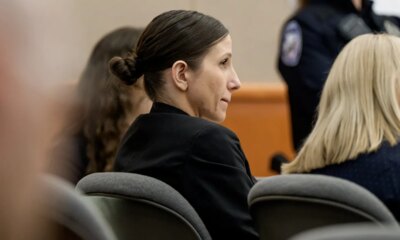Fifty-one years ago, I landed in Anchorage, a midwestern lad who grew up in the shadow of political giants. They were men of integrity — Eugene McCarthy, Hubert Humphrey, Gaylord Nelson, George McGovern, Fritz Mondale — trustworthy and committed to the common good. Alaska, my chosen state, seemed brimming with optimism and possibility, firmly grounded under the governance of a state constitution the envy of the other 49 states, truly echoing Abraham Lincoln: “of the people, by the people, and for the people.”
Today, those very ideals and lofty vision are vanishing just like our beloved glaciers.
About 2,500 years ago Aristotle, a brilliant Greek philosopher for the ages, proffered his thoughts on the soul. From the soul emanates truthfulness, reason and morality. “The good life is the highest good, flourishing and achieved by people of exceptional character and virtue. In moral law, the man who possesses character excellence will tend to do the good and right thing, at the right time, and in the right way”. Likewise, so true of government and our leaders. Conversely, “a person without soul, like government, is an empty being, fallacious, ethically oblivious, without courage, feeling, historically blind, and uncomprehending of moral law.”
“Only by connecting with the soul can good government be exposed. Government is more than a legal structure; it is a manner of life, a moral spirit. By exercising virtue it enables its citizens to flourish. The highest good is the happiness and virtue of every citizen.” What does this say about Alaska today?
I grieve for the demise of our former Alaska — a vision for the common good, for community, civility and civic responsibility; in essence, the vision in our constitution. Today, the soul of Alaska languishes, the sinister effect of our governor — devoid of trust and transparency, rewarding loyalty above merit, sharply restricting freedom of speech and public participation, and employing creative abuses of power against opponents and dissenters. Alas, it is we the electorate who have abetted and created this vanishing soul of our Alaska. Those we have elected are in thrall to duplicitous multinational corporations and the usual panoply of laughably impossible promises: the Permanent Fund dividend, no individual taxes, endless schemes and schemers — bamboozlers all, as Carl Sagan would say.
Regrettably, the Alaska framers established one glaring oversight: a strong executive, which became a liability with a governor bereft of any Aristotelean character such as virtue and truthfulness, clueless of any concept enabling Alaskans to flourish. He has weaponized the line-item veto against his critics, common sense and the greater good. Meanwhile his main “act” is performative auditioning for Trump’s starting lineup. And with a second term, this governor is freer from constraints, be they ethical, moral or legal, and unchecked by a complicit Legislature, attorney general and dedicated PFD vassals. His and others’ view of the PFD as sacrosanct continues to beggar Alaska and shutter buildings and schools, opportunities and aspirations.
The PFD is, ironically and hypocritically, “libertarian socialism,” as Ethan Berkowitz once said. Imagine if the $23 billion paid via dividends to date had instead enriched every Alaskan with the finest schools and educators, the entire University of Alaska system, infrastructure, early childhood education and childhood, welcoming parks and recreation, a world class marine highway system, and so much more. Imagine. And the consequent outmigration abates not. Yet the obscenely profitable drillers and extractors continue to receive billions in tax cuts, subsidies and credits, compliments of standard industry coercion — that old saw, that without such Alaskan largesse, jobs and taxes will evaporate.
The former freed slave, Frederick Douglass, said that reading and education is freedom, and its absence is enslavement. Contrast that with the irreconcilable words and actions — vetoes — of this “education governor,” a virtual condemnation of public education.
He has, thankfully, failed to reshape the Alaska judiciary in his warped image. His parade of unqualified appointments goes on, unimpeded.
The previous sordid behaviors by attorneys general were kept hush-hush until journalists found them out. With little to no public notice or comment allowed, his Department of Transportation, Department of Natural Resources and Department of Fish and Game operate carte blanche, in flagrant defiance of democratic norms. The Permanent Fund trustees, all of whom are his appointees, continue to debase the goal of achieving the greatest return on investment in favor of personal and dubious strategies. So also the board of the Alaska Industrial Development and Export Authority, having squandered many state billions with almost no return to the state, and with almost no official Legislature oversight, a constitutional surrender to the executive branch. This disgraceful Alaskan epoch proceeds unimpeded.
Must we, as Alaskans of conscience, accept this unholy, ruthless, soulless state? Surely the optimism, promise and possibility we knew not so long ago is not irretrievable — Aristotle’s government with soul, whose citizenry is enabled to flourish, find happiness, find satisfaction in life and embrace trust in our government. Lincoln said, “The noblest work of God is an honest man.” May we, blessed with an abundance of honest, good, valorous and true women and men, reestablish the honor and soul of our Alaska.
Peter Mjos is a retired Anchorage physician.
The views expressed here are the writer’s and are not necessarily endorsed by the Anchorage Daily News, which welcomes a broad range of viewpoints. To submit a piece for consideration, email commentary(at)adn.com. Send submissions shorter than 200 words to letters@adn.com or click here to submit via any web browser. Read our full guidelines for letters and commentaries here.

:quality(70)/cloudfront-us-east-1.images.arcpublishing.com/adn/5BVPQDP3BNCD5CBOOCBDNH6Q5I.jpg?ssl=1)



































